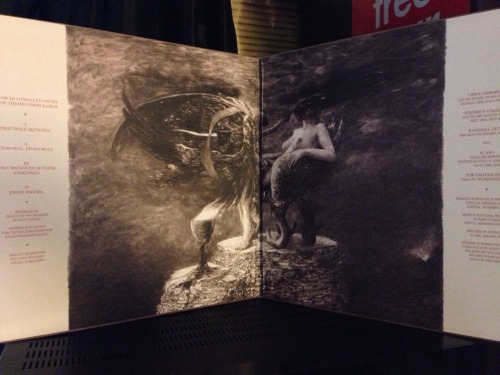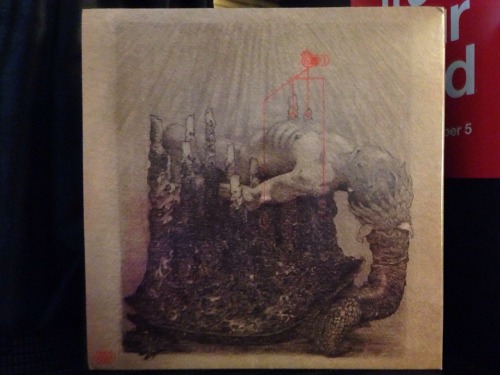#kairos
So I have been kicking around this theory for a while and I think I’ve finally made enough of a breakthrough about it to go on about it.
There’s a device in rhetoric known as the Modes of Persuasion. These are certain modes that are used to help appeal to an audience in order to persuade them to agree with your argument or any other factor that you are looking to achieve. In this case, we’ll be using it in terms of achieving the goal of leadership and change.
The three main modes are - Ethos, Logos & Pathos. Ethos is the appeal to authority/credibility. Example being a dentist’s testimonial about the effectiveness of a toothpaste. Pathos is the appeal to emotions/feelings. Example being basically any of those animal rescue ads with Sarah McLachlan. Logos is the appeal to logic/facts. Example being any sort of charts and figures proving a point. Or just any sort of factual evidence of sorts.
Anyways, so in regards to Fire Emblem: Three Houses, you’re probably wondering what the hell am I talking about? Well here’s the thing - in regards to the three main lords (Edelgard, Dimitri, Claude), they are all lacking in one of these appeals and that is why their methods/paths end up failing without the influence of Byleth for they are the one who helps instill that side of them.
Let’s start off with Edelgard. She has both Ethos and Logos. What she is lacking without Byleth is the Pathos. For her, this is all business. She uses her authority of position to assume power and the facts/figures (church corruption, nobility corruption) to bring forth her own vision. Without Byleth, we see that her path has too much bloodshed as the slaughtering of innocents is seen more as just a part of the war than something that can be avoided. With Byleth, there’s more of a humanity there and the goal is given much more of an emotional impact, especially considering Byleth’s origins.
Now with Dimitri. He’s got Pathos and Ethos. He’s lacking in Logos. He’s got feels for days and the whole being a future king deal is quite a big authority to say the least. His sense of logic, however, has been skewed as we see how he has a serious mental break due to his emotions and goes completely batshit. Without Byleth, he stays in that batshit state and ends up meeting his end in an unfortunate way. With Byleth, he’s able to find the logic necessary (granted it takes time) to become a great leader. He’s able to rein in his emotions for the good of the people.
And finally, onto Claude. As you know how this argument goes, he’s got the Pathos and the Logos. It’s Ethos that he’s missing. He’s known as the Master Tactician and he’s able to come up with schemes and is quite brilliant at it. He’s also got enough of a humanity that when he avoids as much bloodshed as he can (as evidenced by his poison that would only inconvenience someone for a couple days). However, despite being made a legit heir of House Riegan, he does not have enough authority around. People find him deceiving and manipulative. They don’t think he has the credibility and it shows even in the timeskip. With Byleth, he gains that authority and credibility he so seeks to be able to lead. Without Byleth, we see that he ends up pretty much just saying “Peace out” and takes off for his own homeland (or gets killed depending on if you spare him or not in Edelgard’s route)
Of course this does not mean that the lords are lacking in their missing mode. Edelgard does have emotions of sorts, Dimitri does have logic of sorts, and Claude does have authority of sorts. It’s just that without Byleth, those qualities are not able to develop enough to become a viable asset in order for them to succeed in their path.
Maybe this isn’t the most sound theory and maybe I’m just grasping at straws, but I found it very interesting. Feel free to expand upon this if you’d like.
Nah, this is actually pretty well-thought out analysis! I commend you!
It’s always a delight when someone can contrast them while being fair to all of them without oversimplifying them. Indeed I couldn’t put it into such a precise framework as you did, but I did always think that Byleth does sort of balance out all their leadership styles.
Hubert immediately puts them in charge of morale at the temporary encampment the moment he’s sure of their loyalty, he and Edelgard know that they’re not exactly…approachable, PR is not her strength and she tries to be but she struggles to get out of boss mode so with Byleth involved there’s more trust and comradery between her and the others.
They are very much the brains of the operation in Azure Moon (otherwise Dimitri will walk off a cliff and everyone else will follow him), they’re the one who puts a stop to the suicide commando and effectively fills in as the de-facto leader while poor Dimitri is… compromised. Rodrigue and Gilbert frequently ask Byleth what to do & confer with them regarding plans.
And in Verdant Wing Byleth kind of fills out as the presentable figurehead while Claude acts as a mastermind in the back. That’s very clear in their dealings with the church, or flying the crest of flames flag so as not to piss off the Alliance lords for example. Otherwise, Claude is seriously hampered by the fact that ppl just plain don’t trust him and he doesn’t trust them. In AM that contributes to the Gronder fiasco, and in CF Edelgard takes him out in a preemptive strike so he doesn’t try anything while she’s going for her real target - VW is the only route where Lorenz stays loyal to him, for example.
This goes both ways tho Byleth’s an exemptional executive leader both in the strategy and the HR department, but they never really had a cause or vision before meeting [insert favorite house leader]
Interestingly enough, there’s two approaches known as kairos which is the appeal to timeliness and telos which is appeal to purpose. If we put in the hidden route of Seteth as the lord for the SS route, he’d probably be lacking in the kairos mode? I mean he is older and the Church of Seiros seems to be sitting on their hands for a hero to rise.
And in regards to telos, perhaps Byleth is lacking the telos which the other lords are able to give?
Astrology functions as an assessment of temporal quality, but is the archetype of time ruled by any particular sign?
Preface
The wheel of the zodiac is often depicted with Aries on the left, thus keeping it in line with the houses: that is, Aries corresponds to the ascendant and first house, Taurus occupies the second house, and so on.
However, there are some interesting patterns that emerge under other rotations. Rotating the wheel one sign counter clockwise, so that the first house is held by Taurus, we find Cancer and Leo on either side of the nadir, the lowest point of the wheel. This emphasizes the wonderful symmetry between each pair of signs that share rulers:

The exception being, of course, the Sun and Moon which rule one sign each. This might point to a secret identification between these forces, which are typically conceptualized as the most fundamental opposites: consciousness and the unconscious, light and dark, etc. The arcane marriage of these principles is a motif which humanity has been pondering since antiquity. Positioning this syzygy at the bottom of the wheel gives the impression that the other signs spring forth from this coupling as a series of portraits from one luminary to the other; as call and response music, or dance steps. One can say that the entire zodiac functions as a mythological alphabet that elaborates of the riddle of the Sun and Moon.
Time
Under this cosmic lens, let’s examine a feature essential to our experience of the universe: time. Where does time show up in the zodiac? Can any particular sign be said to govern this concept? At the very least, we can draw the strongest general associations between time and these signs:

If you ask astrologers which sign most corresponds to the concept of time, Gemini would be a common and reasonable answer. It is the traditional ruler of clocks and measurements of time, and is said to rule the time-dependent concepts of transit and commuting.
Capricorn is another traditional response, since it rules the schedule, the time table, the restriction of time, the inexorable march of time. Father Time, the bearded old man with the scythe and the hourglass, is one of the most well known personifications of Saturn.
Aquarius is a bit more esoteric in this regard, but perfectly valid. Aquarius is most associated with the concepts of the instant, the moment … suddenness! Moreover, it is the traditional ruler of kairos, the ancient Greek idea of “pregnant time.” From Wikipedia:
The ancient Greeks had two words for time: chronos (χρόνος) and kairos. The former refers to chronological or sequential time, while the latter signifies a proper or opportune time for action. While chronos is quantitative, kairos has a qualitative, permanent nature.
Chronos is a clear attribute of Capricorn, therefore these two notions of time are represented by the two Saturn-ruled signs. These two signs are farthest from our supposed origin-nadir, the Cancer/Leo threshold. Capricorn is opposite Cancer, and Aquarius is opposite Leo. This suits the mythological conception of Saturn as the demiurge, the architect of mundane incarnation, the mechanic of the machinery of the cosmos.
To complete this symmetry, we would hope that Virgo is also associated with time. That way, Saturn-ruled signs can roost up at the dome of time, representing its furthest limits, while Mercury ruled signs can reflect each other as attendants to the atemporal solar/lunar archetypes, initiating those forces into the game of time. Gemini does this job perfectly for the Moon, showing how time is “reflected” in the mind through the image of the clock.
So, is Virgo then one of our rulers of time? Ever humble and self-diminishing, Virgo does not jump out as readily as the others, but it does indeed complete a very crucial and unglamorous role. Any astrologer will tell you that Virgo rules punctuality. That is, the adherence to time. If Gemini is the clock at the train station, and Capricorn is the schedule, and Aquarius is the fortune of sliding through the closing door, then Virgo is the plain fact of showing up on time.
So it is clear that there are affinities between rulerships. The two mercury-ruled signs rule basic, mundane relationships to time: time measurement and time observance. The two Saturn-ruled signs rule the extremes of time: time’s bondage and time’s potentiation. There are also affinities between elements, which we explore later. But there are also delightful parallels between the pairs of signs which share no essential qualities. Consider that Gemini and Capricorn both rule structural, objective attributes of time, summarized by the clock and the schedule respectively. The other pair rules more subjective qualities of time: Virgo corresponds to the season, and Aquarius to the zeitgeist.
Elemental Purports
What does it mean that all four of these time-governing signs are earth or air? At the most obvious level, we should note that in the cultural imagination water and fire are characterized by motion, while earth and air are not. Air is about potentiation; it is the closest element to pure yang. It is the breath, which corresponds esoterically to the pneuma, the coherence of spirit which vivifies matter. It is atmosphere: that which surrounds every atom, and every germ of life, from the smallest bud to the egg of the cosmos. In a sense, pure potentiation means being eternally unborn. It is actually full activity—boundless perpetual motion—or “unlimited wind” in the Vedas—the inexhaustible first word of creation which has no duration, and obviously no equivalent upon the time-dependent material plane.
That plane is brought to us in part by earth, the closest element to pure yin. It is easy to understand how “pure passivity” is not comprehensible within time—easier than the concept of “pure activity” which we looked at previously. There is only ever the appearance of stillness in our perception; never an object which is actually fully static. The signature “movements” of matter may be entropy and decay.
We should also understand the conventional elemental associations with the astrological attitudes: cardinality is “like” fire; fixidity like earth; mutability like air. Therefore these time signs are:
- The airy part of air (Gemini)
- The airy part of earth (Virgo)
- The fiery part of earth (Capricorn)
- The earthy part of air (Aquarius)
So earth is implicated in three of these, and air is implicated in three of these. The only exception to air is the fiery part of earth; earth in its cardinal aspect. This means it is the apparent, self-projecting aspect of earth; earth with its essence on display. Capricorn governs, if you’ll remember, the bondage aspect of time, and the sign that is the most common answer to the naive question of time rulership.
The only exception to earth is the airy part of air: Gemini. This is notably the second-most common response to the question of time rulership. And, as we have seen, together Gemini and Capricorn account for the objective qualities of time. Here’s a weird one: if Gemini and Capricorn are the most obvious rulers of time, perhaps that is partially due to the subjective quality of our time, which is so concerned with, and aware of, objective qualities!
Or maybe it is the fact that the subjective qualities of time are defined by contradiction, and thus more difficult to understand in any age. After all, what is the “earthy part of air” and “the airy part of earth”? There does seem to be an especially elusive mystery about Aquarius: the concept of kairos, but also of the wish, and of heaven. What are we to make of the fact that Aquarius is “familiar to the alien”? Or the fact that it is associated both with the moment and with “timelessness”? We have seen air as pure potentiation, necessitating boundless movement; how could there be a “fixed” expression of such a principle?
In contradiction to the most “alien” sign, Virgo is typically tagged as the most mundane sign. The relative anonymity of Virgo is also contrasted with the radical idiosyncrasy of Aquarius. And its tradition-mindedness would appear also to chafe against Aquarian novelty. Yet let us remember what these signs share: they given definition to the subjective attributes of time. We mentioned that Aquarius holds both the uniqueness of the moment, and the unchanging eternal, but Virgo holds this mystery too. Virgo’s anonymity comes from a deep, intuitive understand that we are all the same. That is why the goddess and the virgin go by so many names. In fact, they necessitate that many names, because the multiplicity of the expression is part of the expression. Virgo is the scattering of the atoms; matter in full possible diffusion. The secondary ruler of Virgo, besides mercury, is not one planet but an abundance of asteroids. Virgo knows both “I am a link in a chain” and also “I am this link.” What is punctuality but specificity? What is a unit of matter but a detail? Virgo knows both, “This season has come before,” and also, “This summer is this summer.”
Summary
The wind of Gemini is the wind that blows in the quality of time, existing in some unknowable potentiation beyond this world. Capricorn is the slow-burn of matter upon which quality plays, and is thereby bound. Virgo rotates the wheel, perpetuating the cycle through its incremental movement. The rotations are then recognized by their quality of motion. Aquarius imagines the wheel stopped, glimpsed in gestalt, and the wheel is recognized by the quality of its stillness. Cumulatively, these four archetypes collaborate to describe the terms of the dance through which psyche extends itself into its many other guises.

Loonros is now canon!!
big fan of anything that shuts my brain off for a little while
Oof.
This is how I’m writing 2012 Mikey.
*whispers* It’s the trauma.
INITIALIZING…
PHASe PROTOCOL ptd_18020203 ACTIVE
…SEARCHING FOR AUTHORIZATION CODE…
… SEARCHING …
AUTHORIZATION CODE: …ACCEPTED
WELCOME CODENAME_SEVEN
PHASe CRIMINAL DATABASE STATUS: OPEN
OPEN KAIROS FILE: …ICARUS
[YES]/NO
Quicksilvers are jacks-of-all-trades who can and will do it all. Thinking on the fly, they’re known for using anything and everything they can to get the job done. Their quick reaction time and ability to go with the flow makes them versatile in hand-to-hand combat, infiltration, traps and more.
Their balanced intellect, strength, and speed makes for a class that is a master-of-none, but almost always finds a way to get the job done and survive most any situation.
Post link






